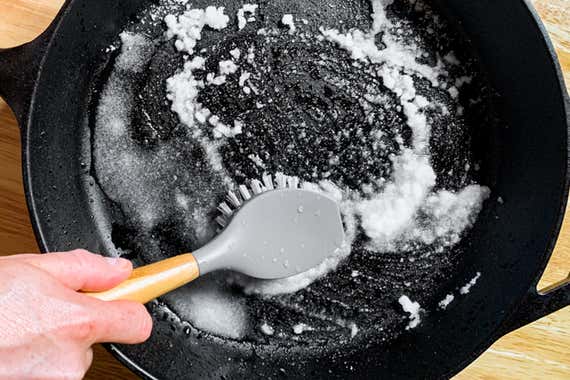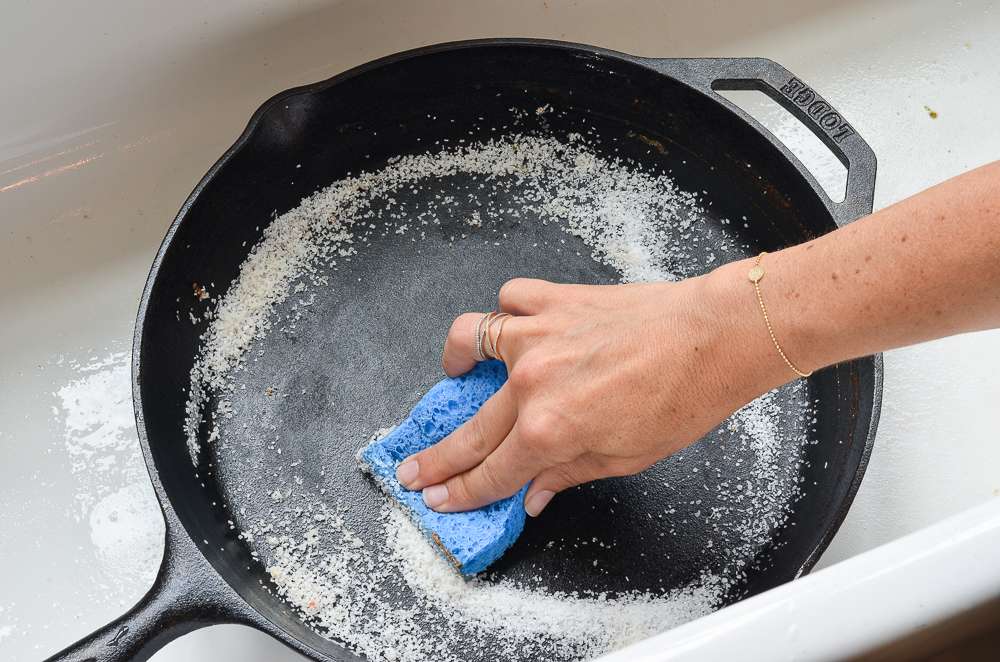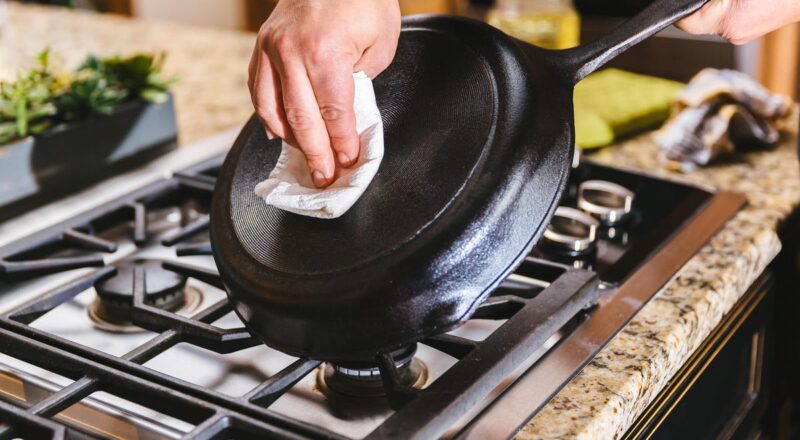Cast iron cookware is cherished for its durability, heat retention, and long lifespan. However, rust can significantly hinder its performance. To our delight, baking soda offers a safe and efficient solution. Here, we delve into the specifics of how to remove rust from cast iron with baking soda.

Understanding Cast Iron Cookware
Cast iron cookware has been a kitchen staple for centuries, and for good reason. Its heat-retention properties make it ideal for slow cooking, searing, and baking. However, maintaining its pristine condition requires some effort, especially when it comes to rust prevention and removal.

Why Baking Soda?
When it comes to rust removal, baking soda stands out for its effectiveness, gentle nature, and environmental friendliness. Baking soda is a mild abrasive that can help lift rust without damaging the underlying metal.

The Step-by-Step Guide
Gather Your Materials
- Cast iron cookware
- Baking soda
- Water
- Stiff-bristle brush or scouring pad
- Vegetable oil or shortening
- Paper towels or clean cloth
Creating the Baking Soda Paste
Form a paste by mixing baking soda with water until it achieves the consistency of toothpaste. This paste will be less abrasive on the cast iron surface while still effectively removing rust.
Scrubbing the Rust Off
Apply the baking soda paste generously on the rusted areas of the cast iron. Use a stiff-bristle brush or scouring pad to scrub the surface gently, ensuring all the rust is removed. Rinse the cookware thoroughly with water.
Drying and Seasoning
After scrubbing and rinsing, dry the cast iron thoroughly using a paper towel or clean cloth. To prevent future rusting, apply a thin layer of vegetable oil or shortening to the cookware, ensuring it is evenly coated. Heat the coated cookware in the oven for about an hour at 350F.

Preventing Rust on Cast Iron
Proper Cleaning Techniques
Cleaning cast iron correctly can help prevent rust from forming. Avoid using soap and instead rinse with hot water and use a brush to remove food particles. For stuck-on food, use kosher salt as a natural abrasive.
Timely Drying
Always dry cast iron immediately after washing to prevent water from causing rust. An effective technique is to dry it on a low burner on the stove to ensure all moisture is evaporated.
Regular Seasoning
Regular seasoning helps create a protective layer on the cast iron surface. Ensure you reapply a thin layer of oil or shortening and heat it periodically to maintain its non-stick properties and prevent rust.
Common Questions Answered
Is baking soda safe for cast iron?
Yes, baking soda is a safe and non-toxic cleaning agent for cast iron. It effectively removes rust and buildup without causing damage to the cookware.
Can I use baking soda to clean other cookware?
While baking soda is excellent for cleaning cast iron, it can also be used on other cookware types, such as stainless steel and non-stick pans. It acts as a mild abrasive to remove stains and buildup.
What do I do if my cast iron is heavily rusted?
For severe rust, you may need to repeat the baking soda scrubbing process several times. Consistency and patience are key. Additionally, a commercial rust remover specifically designed for cookware might be needed for extensive rust damage.
Additional Resources
For more detailed instructions on cleaning and maintaining your cast iron cookware, check out this guide.
Also, explore more about cast iron care on our site:
As an Amazon Associate, I earn from qualifying purchases.

